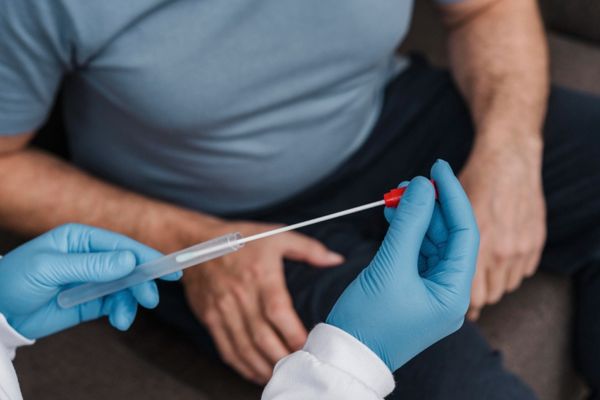

What is Urodynamics?
Urodynamics is a series of diagnostic tests that evaluate how well the bladder, urethra, and sphincters are storing and releasing urine. These tests measure various aspects of urinary function, including bladder pressure, urine flow rate, and muscle activity in the pelvic area. Urodynamics is crucial in diagnosing urinary issues such as incontinence, frequent urination, and bladder control problems, helping healthcare providers understand the underlying causes and develop personalized treatment plans.
Table of Contents
ToggleIn Turkey, urodynamic testing is conducted in advanced medical centers equipped with state-of-the-art technology, ensuring accurate results for optimal care. The procedure is non-invasive, providing valuable insights without significant discomfort or recovery time.
Why is Urodynamics Performed?
Urodynamics is performed to diagnose or investigate various urinary symptoms, allowing doctors to understand the nature and severity of bladder and urinary tract issues. Here are some of the main reasons for urodynamic testing:
- Urodynamic tests help identify the type of urinary incontinence, such as stress incontinence, urge incontinence, or overflow incontinence, each of which requires a specific treatment approach.
- Urodynamics can reveal whether the bladder is emptying completely or if there is residual urine, indicating a possible obstruction or muscle dysfunction.
- The tests can detect overactive bladder (OAB) by measuring bladder activity and pressure, which helps in managing symptoms of frequent urination.
- Urodynamics can reveal if muscle function is affecting bladder control, guiding appropriate treatments like pelvic floor therapy.
By understanding these factors, urodynamic testing helps specialists determine the exact cause of urinary symptoms, leading to targeted and effective treatment plans.
Who Needs Urodynamics?
Urodynamic testing is recommended for individuals experiencing persistent urinary symptoms that have not improved with initial treatments. Here are some groups who may benefit from urodynamic tests:
Individuals with ongoing urinary leakage or sudden urges to urinate that interfere with daily life may require urodynamics to confirm the type of incontinence.
An ultrasound provides a detailed view of the internal structures, allowing doctors to locate plaques and measure blood flow. This test helps determine the size and position of scar tissue and confirms the severity of Peyronie’s disease.
Conditions like multiple sclerosis, Parkinson's disease, or spinal cord injuries can affect bladder control, making urodynamics useful for managing symptoms.
Urodynamics can help assess how well the bladder empties in men with symptoms of benign prostatic hyperplasia (BPH), aiding in determining the best treatment approach.
How is Urodynamic Testing Performed in Turkey?
Urodynamics in Turkey is conducted with precision in clinics equipped with modern diagnostic technology.The procedure usually includes several stages, with each step targeting a different aspect of urinary function. Here’s a step-by-step overview of what to expect:
Pre- and Post-Procedure Care for Urodynamics in Turkey
Before the Test:
- Inform the doctor of any medications you are taking, especially those that affect bladder or muscle function.
- These substances can irritate the bladder, so it’s best to avoid them on the day of the test.
- Since urodynamics involves some testing equipment, comfortable, loose-fitting clothing can make the process easier.
After the Test:
- Drinking plenty of water helps flush out any residual discomfort from the catheter.
- Some patients may feel mild soreness or experience slight blood in urine after the test, which is typically normal and resolves quickly.
- The specialist will review the test results and discuss any recommended treatments or lifestyle adjustments.
Doctors
Op. Dr. Kemal BULUT
Urology Specialist

Cost of Urodynamic Testing in Turkey: Affordable and Comprehensive Care
The cost of urodynamic testing in Turkey is competitive, with affordable pricing that includes a comprehensive evaluation and personalized recommendations. The cost typically depends on the the experience of the specialist, and whether additional testing is required.
- Initial consultation and medical assessment
- Complete urodynamic testing with modern equipment
- Follow-up discussions and recommendations based on test results
Turkey’s reputation for advanced healthcare and cost-effective services makes it a popular destination for urodynamic testing, offering patients reliable results and high-quality care.
FAQ
Urodynamic testing is generally not painful, although some patients may experience mild discomfort during catheter insertion. Any discomfort usually resolves quickly after the test.
The test typically takes around 30-60 minutes, depending on the specific tests involved. It’s usually performed as an outpatient procedure, so patients can go home afterward.
Yes, preparation includes staying hydrated, avoiding caffeine and alcohol, and possibly adjusting certain medications. Your doctor will provide specific instructions tailored to your needs.
Following the test, your specialist will review the results and discuss any findings related to bladder or urinary function. Treatment options or lifestyle recommendations may be provided based on the results to address your specific symptoms.


